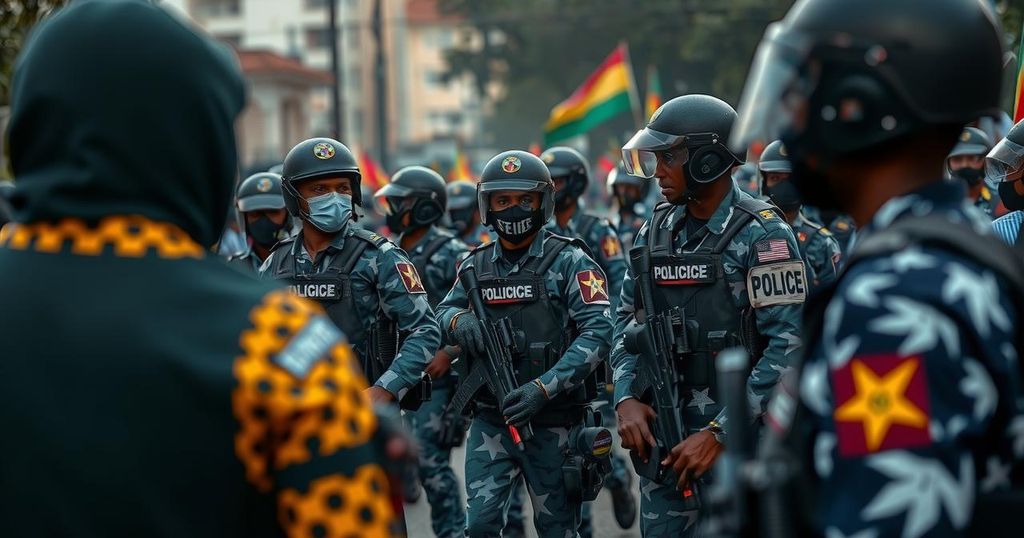Mozambique Election Crisis: Police Violence Against Young Protesters

In Mozambique, post-election protests have led to the tragic killings of young demonstrators, including 16-year-old Antonio Juaqim. Citizens, frustrated with Frelimo’s election victory, are protesting by banging pots and pans nightly. Human Rights Watch reported around 40 deaths, including many children, raising accusations of police brutality. The unrest reflects deep-seated grievances against the ruling party, especially among youth seeking economic betterment.
In Mozambique’s capital, Maputo, the aftermath of the recent presidential election has generated widespread protests and tragic consequences, notably the shooting deaths of young demonstrators. The protests erupted in response to Frelimo’s declared victory, which many have contested as fraudulent. In one of these demonstrations, 16-year-old Antonio Juaqim was reportedly killed by police while participating in a pot-banging protest against the election results. Eyewitnesses cited police shooting at protesters, leading to anger and grief among the community. The events leading to Antonio’s death have sparked a series of nightly protests, with citizens banging pots and pans in solidarity and mourning. As the violence escalated, organizations like Human Rights Watch documented approximately 40 deaths, including at least ten children, amidst allegations of excessive force used by law enforcement. Police Commander Bernadino Raphael has attributed these casualties to the supporters of the opposition candidate, Venâncio Mondlane, claiming they exploited children as shields during the unrest. In contrast, critics of the police’s actions have condemned their responses as overly aggressive, pointing to a growing disenchantment with the ruling Frelimo party, especially among youth longing for economic opportunities.
The political landscape in Mozambique has become increasingly unstable following the announcement of the October elections. Frelimo, the ruling party since independence, claimed a decisive victory, yet this assertion is met with skepticism and accusations of electoral fraud, particularly from the opposition. Rising discontent among citizens, especially the youth, has manifested in protests marked by civil unrest. The tragic deaths of several young protesters, including Antonio Juaqim, underscore the severity of the situation and highlight the deepening divide between the government and its constituents, further exacerbating tensions in an increasingly fragile democracy.
The Mozambique election crisis reveals critical issues surrounding governance, electoral integrity, and human rights. The tragic deaths of young protesters signify a broader societal discontent with the ruling Frelimo party and a cry for justice and accountability. As protests continue, the environment remains charged with uncertainty, emphasizing the need for dialogue and reform to address the underlying concerns of the populace, particularly among the youth who seek a future free from violence and political oppression.
Original Source: www.bbc.com






